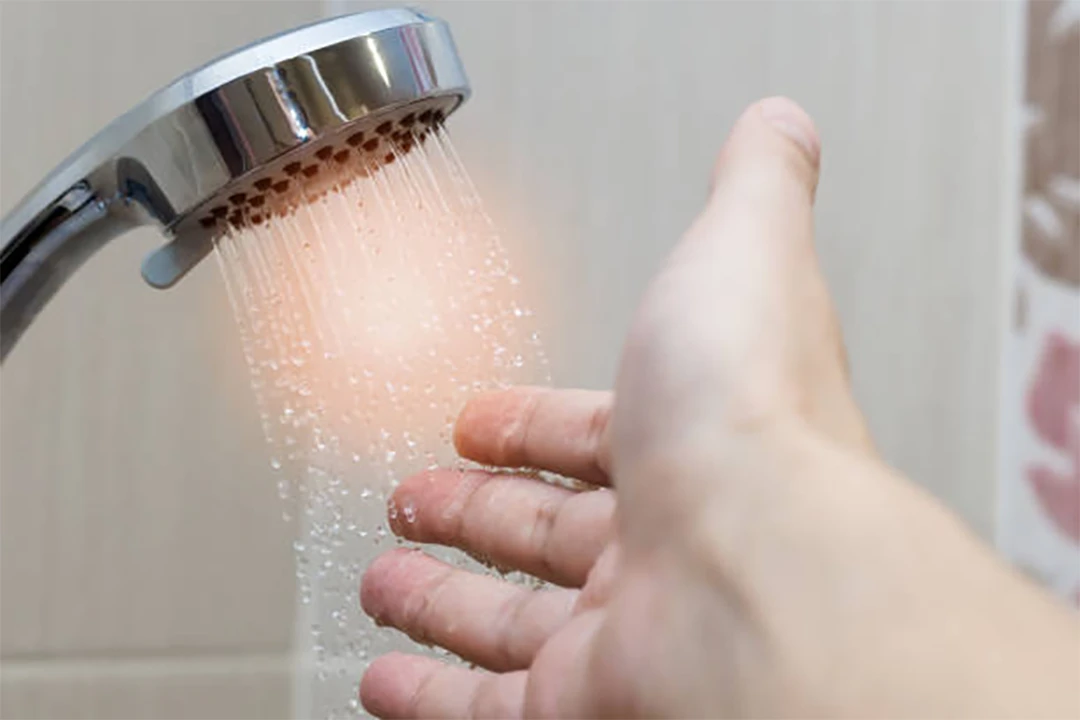
You can’t beat stepping in a hot shower when it’s winter and the cold is beginning to bite you. On a chilly day it can be a welcome relief to be sitting in the soothing warmth. But hot showers are fine for a while, but they can also be bad for your skin. Don’t think for a minute that many people know this, that exposure to hot water can strip the skin of its natural oils and leave it dry, irritated and prone to damage. To keep your skin fresh and hydrated during the colder months, it’s essential to understand just how much of a hit hot showers actually take on your skin.
A Good Reason to Go from Hot Showers in Winter
Hot showers become the favorite ritual in the depths of winter to just stay warm. They relieve instant cold and they add a psychological warmth. Besides overdoing the work part, they can also relax tense muscles by helping to release the steam and heat. While this might be comforting, extremely indulging in this habit may predispose your skin to problems.
The Effects of Hot Water on Your Skin
While hot water feels good, it does terrible things to your skin. Here are some of the primary ways it affects your skin health:
Stripping Natural Oils:
Natural oils, which sebum is also referred to, are what your skin applies from within to prevent moisture from escaping. The oils will be dissolved in hot water and will leave your skin dry, unprotected.
Disrupting the Skin Barrier:
The stratum corneum that sits on the outermost side of the skin is thought of as the skin’s shield against environmental stressors. According to a dermatologist, these are all of these barriers that can be breached by hot showers, costing your skin in terms of becoming more susceptible to irritation and sensitivity.
Exacerbation of Existing Conditions:
Hot showers can worsen skin problems such as eczema, psoriasis or dermatitis. It raises the heat which in turn causes flare ups and pain.
The Signs That Your Skin Is Suffering from Hot Showers
So, if your skin isn’t able to tolerate hot showers, you may begin to see some tell tale signs. These include:
- Rashes as well as quickly after showering.
- A feeling on the skin of being tight or stretched.
- Evidence of colds or other dryness in the air such as the distinctive dryness or flaky patches, say on exposed areas.
- If it’s not going away, even with moisturizing, you have itchy skin.
If you know these symptoms, catching them early can help you correct them before further damage takes place.
How to Protect Your Skin in Winter Showers
Protecting skin during winter can come down to adopting healthier shower habits. Here are some practical tips:
- Lower the Water Temperature: Both lukewarm showers instead of scalding hot water. They may not feel quite as luxurious, but they’re a lot gentler on your skin.
- Limit Shower Time: Even lukewarm water can still dehydrate your skin, so prolonged exposure to water isn’t necessarily good. Tempt yourself to make your showers last less than 10 minutes.
- Use Gentle Cleansers: Do not use harsh soaps to strip skin further. Hydrating body washes with ingredients like glycerin or ceramides — look for these.
- Moisturize Immediately: When your skin is still damp, apply an extremely thick nourishing moisturizer onto your skin. This locks in moisture for hydration.
Alternatives to Hot Showers
If you’re finding it hard to give up the comfort of hot showers, consider some alternatives:
- Warm Baths with Additives: If you can’t take the heat, mix in some oatmeal, milk, or Epsom salts into a warm bath to alleviate and hydrate your skin.
- Stay Warm with Layers: Instead of simply just taking hot showers as a way to stay warm, use the heat from warm clothing, heating pads or blankets.
When to see a Dermatologist
Your skin issues persist even if you’ve changed your shower routine, then it’s about time you reach out to a professional. Cracking or signs of infection may mean your skin has a disorder that requires medical attention. The best skin specialist in Karachi can give you targeted treatments to help restore your skin health.
Conclusion
While ‘indulging in hot showers’ might seem just the thing in winter, they actually can harm your skin more than good. Knowing the risks, spotting signs of damage and changing your healthier shower habits are all things to prevent your skin from drying up. Little changes, like applying lukewarm water, shortening showers, and applying an environmentally friendly smell can have a lot of effect. Winters can be enjoyed without upsetting your skin’s health, all with mindful care.

